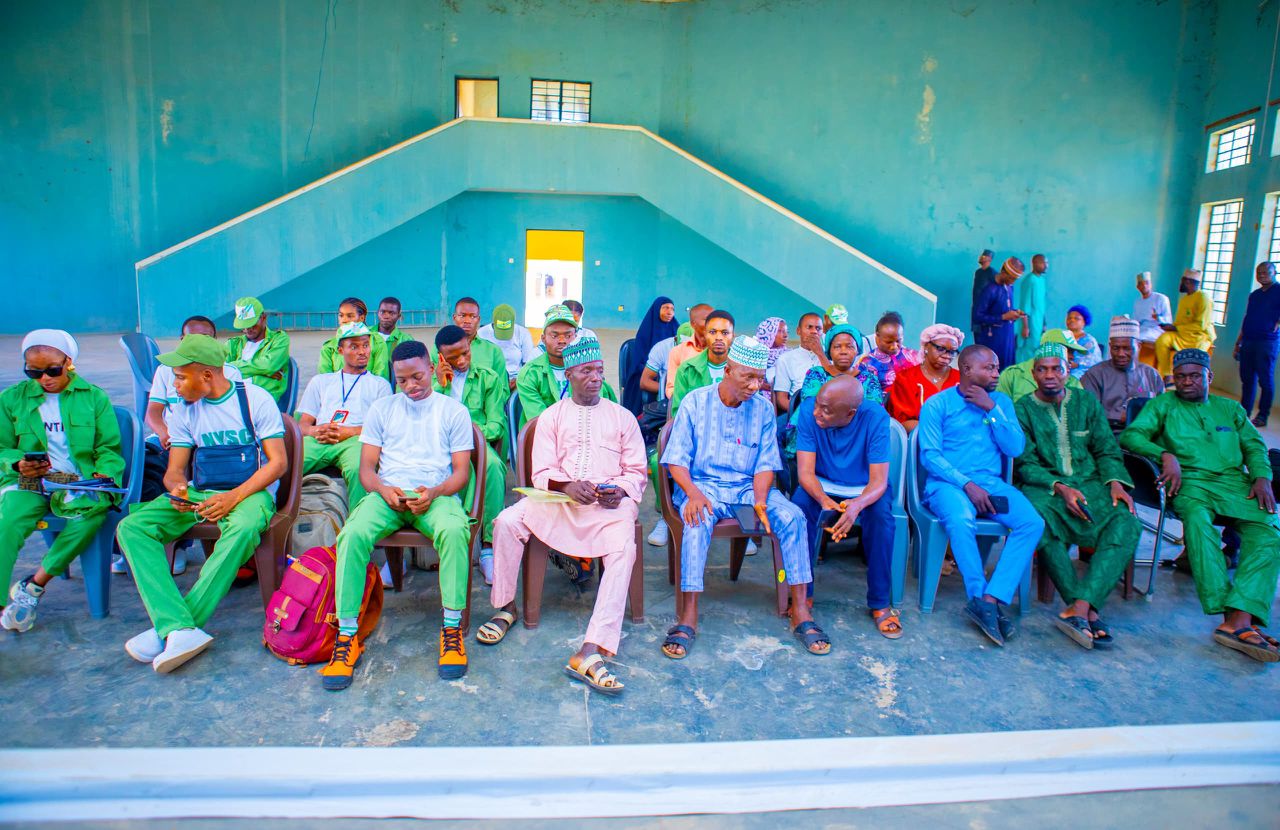Kwara State Governor, AbdulRahman AbdulRazaq on Monday came up for applause as Faculty members of Public Health and Community Medicine commended his administration’s commitment to the sector through investments in infrastructure, payment of counterpart funds, and improved welfare of health sector workers in the state.
Speaking on Monday at the 2023 Faculty Day lecture of the Nigeria Postgraduate Medical College of Nigeria in Ilorin, Faculty Chairman Dr Chikaike Ogbonna said the Governor has blazed the trail in his prompt attention to health issues, including the recent approval of 100% CONMESS and skipping allowance for medical doctors and consultants in the state.
The lecture was themed ‘leading outbreak response in a Nigerian tertiary hospital: the excitements, the frustrations, and the lessons learned’.
Ogbonna commended the Governor for honouring the Faculty with his attendance, charging him to continue along that path.
“We sincerely thank His Excellency for his great strides and for his commitments to healthcare delivery in Kwara State. Your Excellency has paid all counterpart funds as well as 100% CONMESS for doctors and allowances for nurses. You truly deserve to be commended for your efforts,” the Professor said, as the audience clapped in appreciation of the Governor.
The Governor, who commended the Faculty and health specialists for their great efforts in saving humanity at every turn, called on relevant stakeholders in the health sector to strengthen mechanisms towards taming public health issues around the world.
“It’s in the news that UK is having a resurgence of COVID-19. So, we must not let down our guards because it is very important since it is a public health issue. We truly appreciate the work you are doing. In Kwara here, we were able to manage COVID-19 pandemic. Africa was able to manage COVID-19 than many other continents, and this is largely due to your commitment,” AbdulRazaq said shortly after receiving an award from the Faculty.
“The lecture today has enriched me personally as it has drawn my attention to things we may sometimes overlook in terms of budgeting and appropriation.
“The theme of today’s lecture brings to live the memory of the joint effort that was committed to rid our communities of COVID-19. What we achieved, both as a nation and specifically here, was an outstanding enabler, which gave us a practical opportunity to evaluate the health system we inherited.”
AbdulRazaq urged medical doctors to work harmoniously with all other members of the health team for better results.
“In response to our observations and findings, our administration concentrated on addressing the infrastructural gaps in my first tenure during which we were able to fix well over 57 health care facilities, ensured payment of counterpart and commitment funds to enlist the state and initiate operationalisation of the Basic Health Care Provision Fund, run the ANRiN project smoothly. We also made multi-pronged Malaria elimination interventions accessible to all Kwarans amongst others,” he said.
“Without resting on our oars, about 2 weeks ago, I approved the upgrade of the CONMESS salary to 100% for doctors and also approved several allowances to enhance the CONHESS salary for nurses and pharmacists in the state and the local Government.
“We are hopeful that addressing attrition challenges in human resources, in this way, will tremendously reverse the JAPA trend and enable us to retain more good hands and make our state attractive for more specialists to join us in providing quality health care to our people.
“In consonance with the extant definition of health, according to WHO, and the SDGs, we are equally touching the lives of all Kwarans positively in the socio-economic space, education, agriculture, and rural development, amongst others with a view to maintaining an overall well-being.”
Speaking on the theme of the lecture, a Professor of Public Health, Obafemi Awolowo University, Ile-Ife, Osun State, Adedeji Onayade, identified limited resources, strained facilities, communication barriers, the rapid spread of false or misinformation, rumour, and myth mongering through the social media as some of the hurdles for executing effective response in disease outbreaks.
“Amidst these excitements and frustrations, valuable lessons are learned. Each outbreak response provided an opportunity for reflection, improvement, and building resilience for future challenges, for example, based on the experience with Ebola, active members of the COVID-19 committee were volunteers who committed to the response,” he added.
“My excitements lie in opportunities for innovation, collaboration, and the lives saved. Leading the teams, responding to affected persons, motivating workers, and applying my knowledge, expertise, little understanding of the Yoruba culture and proverbs, to devise strategies for outbreak containment and disarm distractors have been rewarding.”
Prof Onayade also described disease outbreak as a security issue and called on policymakers to maximize the large pool of expertise available in the departments of community health/Medicine within the tertiary institutions during outbreak of diseases.






